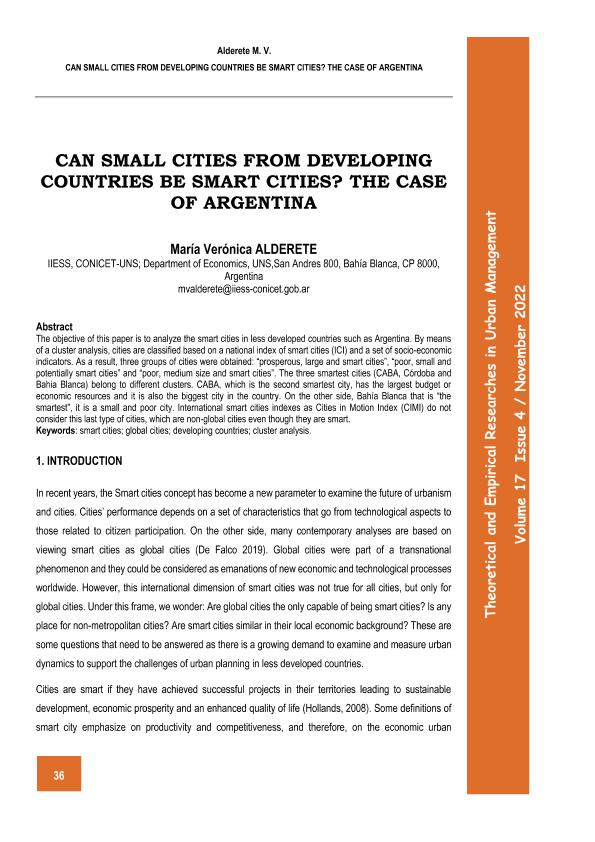Artículo
Can small cities from developing countries be smart cities?: The case of Argentina
Fecha de publicación:
11/2022
Editorial:
Bucharest University of Economic Studies. Research Centre in Public Administration and Public Services
Revista:
Theoretical and empirical researches in urban management
ISSN:
1842-5712
e-ISSN:
2065-3921
Idioma:
Inglés
Tipo de recurso:
Artículo publicado
Clasificación temática:
Resumen
The objective of this paper is to analyze the smart cities in less developed countries such as Argentina. By means of a cluster analysis, cities are classified based on a national index of smart cities (ICI) and a set of socio-economic indicators. As a result, three groups of cities were obtained: “prosperous, large and smart cities”, “poor, small and potentially smart cities” and “poor, medium size and smart cities”. The three smartest cities (CABA, Córdoba and Bahia Blanca) belong to different clusters. CABA, which is the second smartest city, has the largest budget or economic resources and it is also the biggest city in the country. On the other side, Bahía Blanca that is “the smartest”, it is a small and poor city. International smart cities indexes as Cities in Motion Index (CIMI) do not consider this last type of cities, which are non-global cities even though they are smart.
Palabras clave:
SMART CITIES
,
GLOBAL CITIES
,
DEVELOPING COUNTRIES
,
CLUSTER ANALYSIS
Archivos asociados
Licencia
Identificadores
Colecciones
Articulos(IIESS)
Articulos de INST. DE INVESTIGACIONES ECONOMICAS Y SOCIALES DEL SUR
Articulos de INST. DE INVESTIGACIONES ECONOMICAS Y SOCIALES DEL SUR
Citación
Alderete, Maria Veronica; Can small cities from developing countries be smart cities?: The case of Argentina; Bucharest University of Economic Studies. Research Centre in Public Administration and Public Services; Theoretical and empirical researches in urban management; 17; 4; 11-2022; 36-51
Compartir




